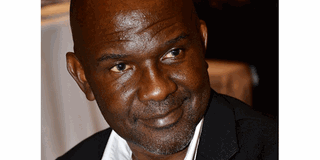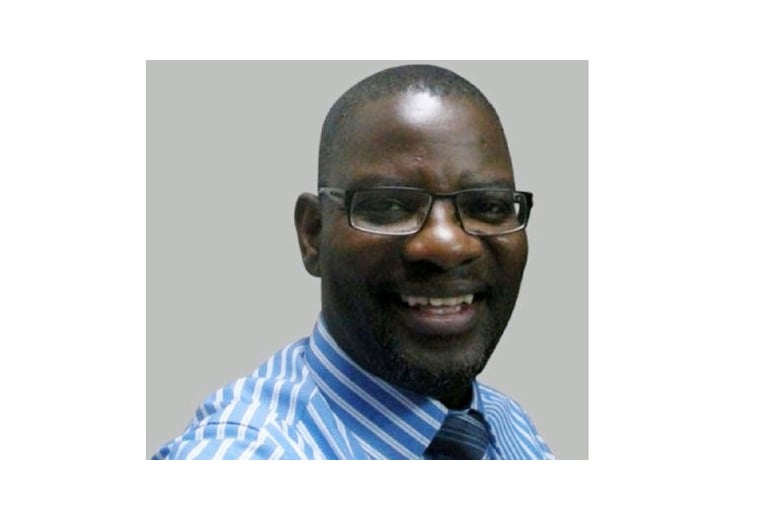Prime
A coup in Uganda isn’t a remote idea as imagined

Author: Nicholas Sengoba. PHOTO/NMG
What you need to know:
He has to watch the people round him, for it is Judas who was on the team of disciples who betrayed Jesus, not the sinners in the opposition.
Because of the dreadful reputation that Uganda has, of shambolic, stolen elections, it is impossible for many to imagine defeating Gen Yoweri Kaguta Tibuhaburwa Museveni at the ballot.
The opposition is too weak, compromised, and disorganised to stand up to him. Others will tell you that he even has the backing of the mighty ‘Western/donor constituency,’ with their financial and military muscle. He is their ally in pacifying the region, especially as a partner in dubious war on terror. That he will quickly mobilise what one analyst called a houseboy army to go and die for ‘their’ causes anywhere on the continent. They will do everything to keep him around. You would be laughed off the park if you talked of forcing him out.
So as happens following a trend on the continent, when the army in Guinea, Bukina Faso, Mali, Niger, Chad, Sudan and now Gabon moved out of the barracks and forcefully took the reins of power, Uganda became a subject in that light. Water easily flows where it once flowed. Could it also happen here like it did in 1971 and 1985?
It is important to note that the first line treatment of the coup disease is to create a small cabal in comparison with the population; of a highly empowered critical mass to help the principal to rule. They are above the law, are speedily enriched purportedly to create a middle class through primitive accumulation of wealth mainly by corruption. They collectively become the state that they destroy. No hospitals, schools and roadworks while they travel abroad on public funds and ride in four wheel drives with lead cars. You have to be nice to them and by extension the party they support to get a job or other rights which are made to look like favours.
Meanwhile the majority of the population is severely impoverished and constantly preoccupied with the quest for survival to think of rising up and challenging the status quo. The noisy and trouble makers are either bought, jailed, exiled or even killed. Their businesses are destroyed and property grabbed, leaving them on the brink. Poor people are easy to control.
But the subject of coups is very interesting and confusing if you don’t get the very important point that generally a coup is not a moral matter of creating a better future for the country or righting wrongs. It is an ‘inside job’ to ensure continuity of more of the same evil in a different dress. So the weakness of ‘outsiders,’ and other factors may hold (for some time,) which may mean decades; but may not be of much consequence in the long run.
The so-called ‘powerful regimes,’ like the NRM have the trouble of having no worthy critics or competition to correct and beat them onto the straight path. They will not improve and strengthen. They recruit sycophants, turncoats and survivors who will praise them while things go wrong. So they suffer internal decadence and weaken while outsiders in the midst of the cacophony of empty praise falsely think they are strong.
The leader in this arrangement like Museveni is not necessarily wanted for their ingenuity. They are selfishly needed to keep the ruling class safe with its privileges intact as long as they are strong. If he shows weakness like ill health as happened in the case of Robert Mugabe in Zimbabwe, then he is a candidate for a coup. The cabal can’t risk the uncertainty of him suddenly dying without knowing if the person who will take over will continue protecting them. Now this ropes in the issue of succession. If the chosen one is deemed to be erratic, lacks charisma, is a poor communicator and is not sober minded; meaning they may drop the ball for people outside the cabal, then there is need for a coup to put in charge, the right person from within.
In Zimbabwe, Mugabe pointed at his wife Grace Mugabe. The leaders of ZANU-PF felt that she was not from among their ranks and may have ideas of purging the system to give way to a team recruited on her own terms. This would put them at risk. So they kicked him out and installed Emmerson Munangagwa whom one critic in Zimbabwe described as worse than Mugabe.
The other point is that after several years of corruption and abuse the whole country will grind to a halt at some point with no social safety net. The long standing leader like Museveni will not be able to recreate himself having run out of empty promises. People see not hope and begin to lose the fear because they are the walking dead.
A coup is inevitable to pacify the angry people and give them (false) hope that comes with apparent ‘change.’ Fellows in the ruling cabal who have benefited all along will kick out the leader blaming him for all that has gone wrong. They will pretend to offer a new beginning. In Egypt and Sudan, the people around Hosni Mubarak and Omar al Bashir respectively are now in charge serving more of the same.
Then if the long standing leader becomes a risk globally and loses favour with the so-called ‘international community,’ for purposes of self-preservation for those around him, the solution may be a coup. This is especially if they apply pressure by placing travel bans and economic sanctions on the cabal that surrounds him. Remember most of the aging clique has stashed their looted wealth abroad and need to visit the global north for medicare instead of dying here in ill-equipped hospitals like the rest of us. The West did it with Mugabe and recently have tried the same with Russian President Vladimir Putin. They confiscated the wealth of his oligarchs globally to motivate them to remove him from power.
The other critical moment for a coup is the President attempting to recreate himself by effecting disciplinary measures like prosecution against the powerful cabal that surrounds him. In Uganda’s history, Idi Amin in 1971 launched his coup because Obote was on the brink of arresting his army commander for corruption. If Museveni dares to seriously (he may merely play to the gallery) move on this group that has prospered in the realm of corruption and abuse of power, they may gang up and remove him for their security.
This has left him in a catch-22. There is need to ensure sanity and frugality at a time when the economy has ground to a halt and the donors are holding onto their money. Museveni may have to interfere with the rapacious appetites of the very cabal that has made it their right to steal from the economy in order to get things going. It is not going to be easy in the long run and it will create the sort of headaches that an aging leader would rather do without.
He has to watch the people round him, for it is Judas who was on the team of disciples who betrayed Jesus, not the sinners in the opposition.
Mr Sengoba is a commentator on political and social issues
Twitter: @nsengoba



